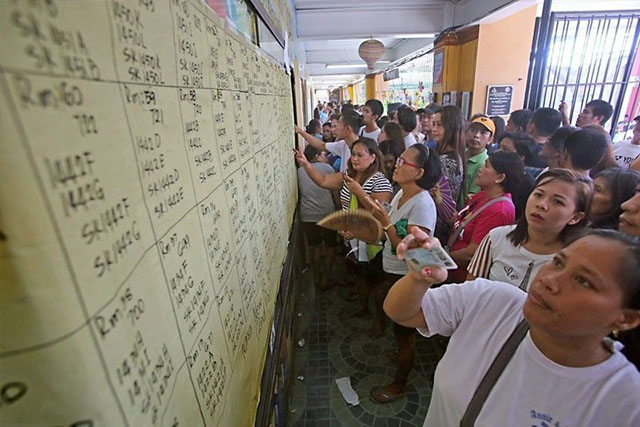President Rodrigo Duterte’s “cult image” on social media may have helped the candidates he endorsed win in the midterm elections.
As of press time, the top 12 candidates are Cynthia Villar, Grace Poe, Bong Go, Pia Cayetano, Bato Dela Rosa, Sonny Angara, Lito Lapid, Imee Marcos, Francis Tolentino, Koko Pimentel, Ramon Revilla, Jr. and Nancy Binay. Majority of the personalities above are allies endorsed by Duterte and his daughter Sara.
People hoped he was the One
Duterte was able to build an image of him being a tough crime-fighting mayor of Davao city in 2015, Senator Antonio Trillanes IV said in an open letter on Facebook, thus eventually winning him the highest position of the land in 2016.
Duterte cleverly did this by spreading false hearsays the general public got online.
Trillanes noted that even if there are 35 to 45 million active social media users in the country, a huge part of these are below the voting age of 18 years old. He did not indicate the source of this data.
Recent reports showed that there are around 3.48 billion more Filipinos using social media in 2019.
Those who are active, however, only log in for socializing purposes.
Political information is therefore acquired via word-of-mouth communication “where the interplay of facts, news, fake news, advertisements, urban legends, myths and rumors get chewed on and chewed out.”
This is where Duterte’s paid trolls and fake news purveyors come in.
“As a policy, they have constantly distorted information and disrupted the information flow to deceive and manipulate the minds of the general public. Duterte himself, as mayor of Davao City for almost three decades, has mastered this propaganda game as an essential element to his hold on power,” Trillanes explained.
A study from the University of Oxford revealed around P10 million was spent to hire these trolls to spread propaganda for Duterte and harass his dissenters.
Duterte later on admitted to this move but he only did this during the campaign season.
In 2019, Facebook took down almost 200 pages and groups associated with a Filipino public relations practitioner who led the social media team that worked to ensure Duterte’s presidential victory.
Trillanes also cited the report of Davao city being the safest city in the country which was circulated in 2015 even if it was based on an opinion-based survey rather than legitimate metrics.
This ran counter to police records. From 2010 to 2015, Davao city has the highest murder rate with 1,032 cases while second with the most rape incidents or 843 cases.
Duterte’s massive social media campaign continued even during his presidency.
The lawmaker alleged that Duterte’s administration gained control over mainstream media similar to what he did in his hometown.
“As confided by some reporters and editors, the basic rule in news rooms right now is, absolutely, no negative news for Duterte, Bong Go and the administration in general. Otherwise, the fearful or co-opted media owners and editors would block them,” Trillanes said.
Meanwhile, the influencers or bloggers who support him do their work and were even given government positions as a form of reward.
“All the while that this is happening in mainstream media, the Duterte social media machine was in full swing too, with paid influencers or trolls utilized as peddlers of propaganda, myths, anecdotes and fake news to expand and solidify their netizen base and trigger word-of-mouth circulation,” he added.
A new hope after
Trillanes highlighted a “silver lining” to the opposition’s defeat: Most of the candidates he or Sara endorsed did not win.
“Only Bong Go and Bato Dela Rosa can be considered Duterte creations and alter egos. Other candidates that he or daughter Sara personally endorsed for the Senate, like Dong Mangudadatu, Jinggoy Estrada, Jiggy Manicad, Freddie Aguilar and Raffy Alunan, lost badly too. Even close ally and incumbent Senator JV Ejercito is in danger of losing his seat,” he said.
Looking at the candidates, Villar, Poe, Angara, Pimentel and Binay are re-electionists. Lapid, Revilla and Tolentino are also established names both in politics and entertainment.
Moreover, Marcos and Cayetano are also part of prominent political dynasties.
Trillanes encouraged the “enlightened” Filipinos to move on from the elections but not give up their advocacy for human rights.
The rival Otso Diretso members also trended the most during the campaign season this year, according to Twitter Philippines.
“We must also build on and be inspired by the positives of the last elections as enumerated above. We are not alone anymore. The ranks of the enlightened have grown so much bigger. It is also quite significant that the polls showed that, generally, the middle class has already turned its back on Duterte. It could now become the backbone of the enlightened movemen,” Trillanes said.

